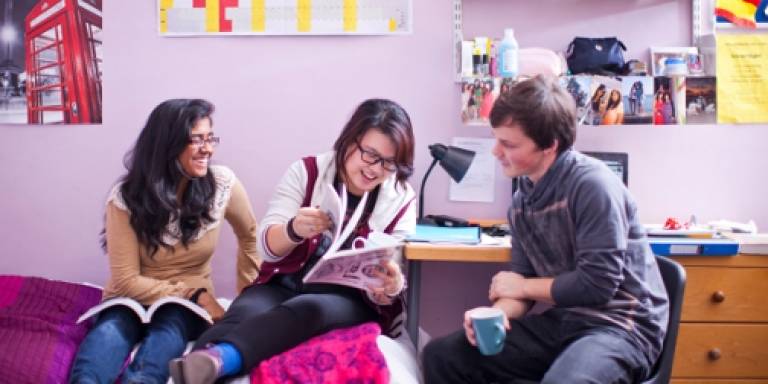3 tips for overcoming the challenges of communal living
26 November 2015
During the 14 years I've been a counsellor at UCL, students have told me over and over again that there are certain behaviours that can lead to them no longer wanting to live with a flatmate or group of flatmates.

Do any of them sound familiar to you?
- Leaving dirty dishes in the sink for days
- Not doing their share of the household chores
- Playing music loudly at night when you have to get up for a 9am lecture or an exam the next day
- Not replacing something of yours that they damaged
- Eating your food without asking you if they can
- Not paying their share of the bills on time
- Using your belongings without your permission
While none of these
behaviours are terrible in isolation, they are all behaviours that can make
flatmates feel devalued or discounted, especially if they are repeated often
enough.
They are also behaviours that are difficult to challenge without
fearing being perceived as boring, or controlling. Hence, deciding to move can
often feel like the only option available. But is it?
Here are some of the ways students have dealt with these difficulties in the past.
1. Developing some shared rules for living
This involves agreeing what is acceptable behaviour and what is not. For example, it may be OK to leave dirty dishes in the kitchen over night, but no longer than that and certainly not in the sink.
2. Creating a rota of chores
This involves agreeing who will do what, by when and to what standard. For example, It may be OK to tidy up the main living area once a week, but not OK to wait until the kitchen bin is overflowing before it is put out for collection.
3. Respecting each other's differences
This involves accepting that what is acceptable to one person may not be acceptable to another. For example, one person may be OK with their belongings being used without being asked first, while another might not be OK with this at all.
Catherine McAteer, Head of UCL Student Psychological Services
 Close
Close

